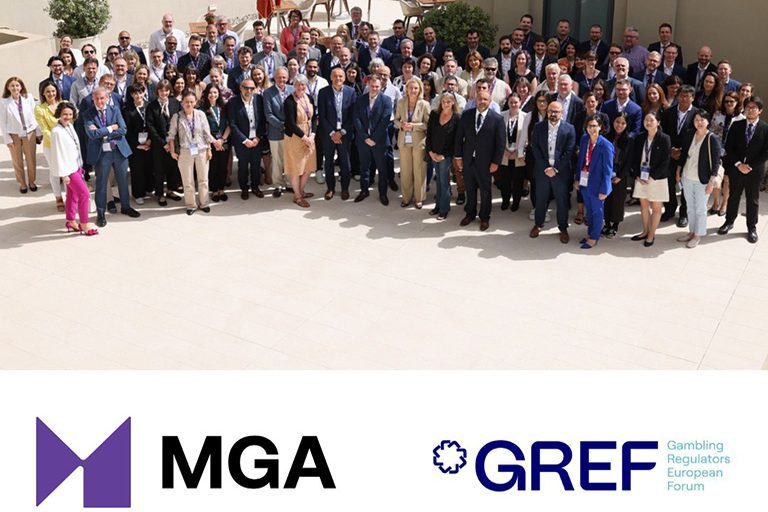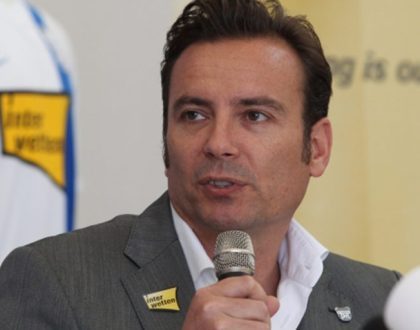MGA Hosts GREF 2024 Conference

The Malta Gaming Authority (MGA) successfully hosted the Gaming Regulators European Forum’s (GREF) 2024 conference from May 20 to 22 in Malta. This remarkable gathering convened gaming regulatory authorities hailing from more than 25 nations, establishing a vibrant forum to tackle urgent industry issues and share invaluable perspectives.
A Global Perspective
For the first time, the conference saw the participation of regulators from continents beyond Europe, introducing a global outlook to the discussions. The agenda was packed with crucial topics, including the MGA’s Environmental, Social, and Governance (ESG) code, responsible gambling, digital innovation, international perspectives on gambling regulation, anti-money laundering (AML), and geographical approaches to gambling.
Opening Remarks and Key Themes
GREF Chairperson Isabelle Falque-Pierrotin expressed her honor in opening the 2024 Annual Conference. She emphasized the growing sophistication of GREF members in their analyses and regulatory tools, the urgent need for cooperation among stakeholders, and the openness to international partnerships. “European regulators cannot be isolated,” she stated. “Even if we have specific and unique responsibilities, we need to work with others to propose effective regulation.”
The Importance of Collaboration
Charles Mizzi, CEO of the MGA, extended a warm welcome to participants in Malta, emphasizing the vital role of collaboration in ensuring effective regulation. He remarked, “The complexity of the industry demands collaborative efforts. With various stakeholders, including operators, technology providers, and government bodies, all playing critical roles, collaboration allows us to leverage diverse expertise and perspectives to develop comprehensive and effective regulatory frameworks that address the complexities inherent to the industry.”
ESG and Sustainable Practices
A pivotal topic of discussion was the development of the ESG Code, presented by Anna Grech, International Affairs & Policy Outreach Manager at the MGA. Grech highlighted the importance of recognizing licensees’ commitment to sustainability and showcasing the positive initiatives already being undertaken by the gaming industry. The ESG Code is a step towards integrating environmental and social governance into the core operations of gaming companies, ensuring a sustainable and responsible approach to industry practices.
Anti-Money Laundering Focus
Rachel Bezzina, the Anti-Money Laundering (AML) Manager at the MGA and co-chair of the GREF AML working group, led an insightful dialogue on best practices for effective monitoring and supervision over money laundering and financing of terrorism (ML/FT) risks. Bezzina’s updates were crucial for regulators, providing a roadmap for enhancing AML frameworks and ensuring robust measures are in place to combat financial crimes within the gaming sector.
Networking and Collaboration
The conference attracted over 90 participants, representing regulatory bodies from various countries. It served as an excellent platform for networking and collaboration among international stakeholders, reinforcing the importance of a unified approach to gaming regulation. The diverse attendance underscored the global nature of the gaming industry and the necessity for international cooperation in regulatory practices.
Digital Innovation and Responsible Gambling
Digital innovation was a key focus at the conference, with discussions centering on how technological advancements can be harnessed to improve regulatory practices and enhance player protection. Responsible gambling emerged as a critical theme, with experts sharing strategies and tools to promote safer gambling environments. The integration of technology in responsible gambling initiatives was highlighted, showcasing how digital tools can support self-exclusion programs, real-time monitoring, and personalized interventions.
International Perspectives on Regulation
The presence of regulators from other continents added a valuable dimension to the discussions, providing international perspectives on gambling regulation. These contributions highlighted the diverse regulatory landscapes and approaches adopted globally, offering insights that could inform and enhance European regulatory frameworks. The exchange of ideas and best practices underscored the importance of learning from global experiences to tackle common challenges effectively.
Future Directions and Initiatives
The GREF 2024 conference concluded with a forward-looking perspective, focusing on future directions and initiatives. Key takeaways included the need for continuous improvement in regulatory practices, the importance of embracing innovation, and the commitment to fostering a sustainable and responsible gaming industry. Participants left the conference with a renewed sense of purpose and a shared commitment to advancing the regulatory landscape for the betterment of the gaming sector.
Conclusion
The GREF 2024 conference, hosted by the Malta Gaming Authority, marked a significant milestone in the global gaming regulatory landscape. By bringing together regulators from over 25 countries and fostering a collaborative environment, the event underscored the importance of international cooperation in addressing industry challenges. Key discussions on the ESG Code, responsible gambling, digital innovation, and anti-money laundering highlighted the evolving complexities of the gaming sector. The conference concluded with a strong commitment from participants to enhance regulatory frameworks, embrace innovation, and promote sustainability, ensuring a responsible and thriving future for the global gaming industry.
FAQ
What was the main purpose of the GREF 2024 conference hosted by the Malta Gaming Authority?
The main purpose was to unite gaming regulators from over 25 countries to discuss pressing industry challenges and exchange insights.
Why was the 2024 conference significant in terms of international participation?
For the first time, the conference included regulators from continents outside Europe, adding a global perspective to the discussions.
What key themes were addressed during the GREF 2024 conference?
Key themes included the ESG Code, responsible gambling, digital innovation, international perspectives on gambling regulation, and anti-money laundering.
Who opened the GREF 2024 conference and what did they emphasize?
GREF Chairperson Isabelle Falque-Pierrotin opened the conference, emphasizing the need for cooperation among stakeholders and the openness to international partnerships.
What was the main message from MGA CEO Charles Mizzi during the conference?
Charles Mizzi highlighted the importance of collaboration among various stakeholders to develop effective regulatory frameworks for the gaming industry.
What is the ESG Code discussed at the conference?
The ESG Code is an initiative to acknowledge and build upon licensees’ commitment to sustainability within the gaming industry.
What insights did Rachel Bezzina provide regarding anti-money laundering?
Rachel Bezzina discussed best practices for monitoring and supervising ML/FT risks, providing a roadmap for enhancing AML frameworks in the gaming sector.
How did the conference facilitate networking and collaboration?
The conference provided a platform for over 90 participants from regulatory bodies worldwide to network and collaborate, emphasizing a unified approach to gaming regulation.
What role did digital innovation play in the discussions?
Digital innovation was a key focus, with discussions on how technology can improve regulatory practices and enhance player protection.
What were the main takeaways from the GREF 2024 conference?
The main takeaways included the need for continuous improvement in regulatory practices, embracing innovation, and a commitment to fostering a sustainable and responsible gaming industry.
Esther
I am a professional writer with 8 years of experience in this field and I can provide you with the best-written content you can find. Education B.A. - English, George Washington University, United States, Graduated 2011.
Recommended Posts

SEO Strategies for iGaming Success
July 1, 2024

Hub88 & Popiplay Enhance iGaming Content
July 1, 2024

Werner Becher Appointed CEO of Kambi Group
July 1, 2024




